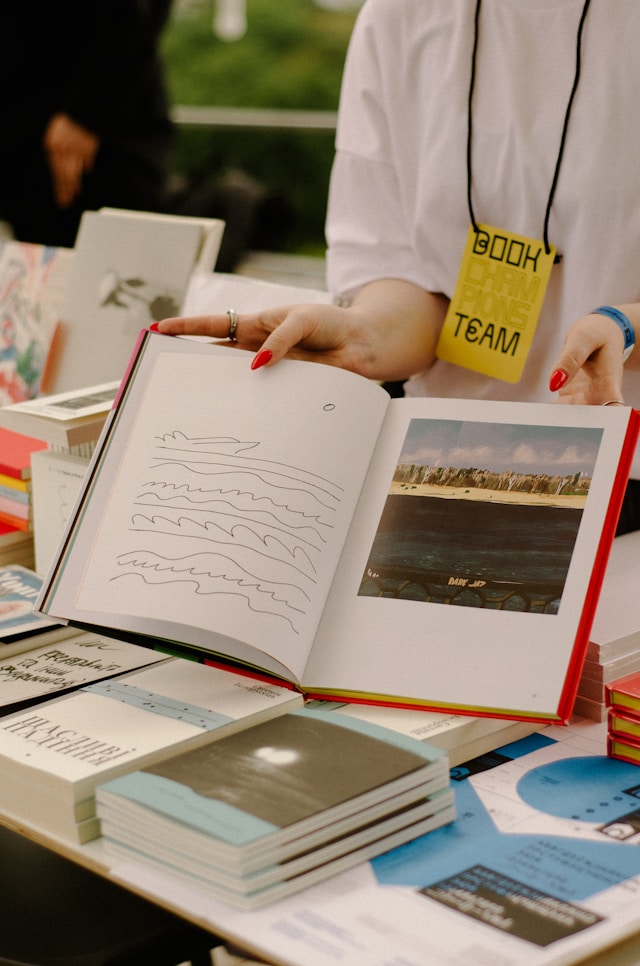In a city where creativity pulses through every borough, the Brooklyn Book Festival stands as a literary beacon in the cultural capital of the world. What began in 2006 as a modest gathering of authors and readers has grown into one of the largest free literary festivals in New York City—and indeed, the country.
A Festival for Everyone
Each year, thousands of book lovers descend upon Downtown Brooklyn to celebrate the written word, connect with authors, and immerse themselves in a dynamic blend of storytelling, dialogue, and discovery.
The Brooklyn Book Festival isn’t just for the literary elite or die-hard bibliophiles. It’s a free and public celebration of literature that welcomes everyone. With programming for children, teens, and adults, the festival spans genres, generations, and perspectives, ensuring that everyone finds something to engage with.
Panels and readings feature a wide variety of voices: Pulitzer Prize-winning novelists, international poets, debut authors, graphic novelists, and independent publishers. Topics range from contemporary politics to speculative fiction, urban life to environmental justice, offering conversations that reflect both the diversity and urgency of the world we live in.
A Week of Literary Celebration
While the main festival day is typically held on a Sunday in late September, the Brooklyn Book Festival is much more than a single event. “Bookend Events” take place throughout the preceding week across New York City, transforming bookstores, libraries, theaters, and even parks into stages for literary magic. These satellite events allow festival-goers to attend intimate author talks, spoken word performances, book launches, and panel discussions in settings that feel personal and immersive.
This extended format amplifies the festival’s reach and spirit, making literature accessible not just in Brooklyn, but across the five boroughs.
A Platform for Diverse Voices
One of the defining characteristics of the Brooklyn Book Festival is its unwavering commitment to inclusivity. Organizers intentionally spotlight authors from marginalized communities and underrepresented backgrounds. It’s a place where readers can hear from Indigenous writers, queer voices, immigrant storytellers, and writers of color—all in one day, often on the same stage.
This diversity is not just reflected in the programming, but also in the audience. The festival draws a crowd as varied and vibrant as the city itself. Whether you’re attending a panel on Afrofuturism or a conversation about diasporic identity, you’re likely to find a thoughtful and engaged audience that mirrors the richness of the literary content.
The Marketplace of Ideas—and Books
At the heart of the festival is its bustling Literary Marketplace, a sprawling outdoor venue where independent presses, literary magazines, major publishers, and local bookstores set up shop. The marketplace is more than a place to buy books—it’s a forum for conversation, discovery, and community building.
Here, you can meet the team behind your favorite zine, stumble upon a small press title you never knew you needed or grab a signed copy from an author you just saw speak. The marketplace underscores the festival’s mission to support the full literary ecosystem.
A Family-Friendly Affair
The Brooklyn Book Festival offers a full lineup of events specifically for younger readers. From interactive storytime sessions and hands-on workshops to readings by beloved children’s and YA authors, the festival cultivates a love of reading from an early age. The Children’s Day, typically held on the Saturday before the main festival, turns MetroTech Commons into a wonderland of kid-friendly literary fun.
Parents and caregivers can explore curated programming that speaks to young imaginations while also addressing real-world issues in age-appropriate ways. It’s a reminder that fostering literacy and critical thinking starts early—and can be a joyful experience.
Innovation Meets Tradition
While rooted in the physical joy of books and in-person experiences, the Brooklyn Book Festival has embraced innovation. In recent years, the festival has incorporated hybrid elements such as livestreamed panels, digital archives, and virtual Q&A sessions, making the event accessible to audiences far beyond New York City.
This blend of tradition and technology allows the festival to expand its reach while staying true to its core values: celebrating literature, championing diverse voices, and creating spaces for meaningful connection.
Conclusion: More Than a Festival
The Brooklyn Book Festival is more than a literary event—it’s a cultural institution that reflects the soul of New York City. It’s where ideas are exchanged freely, where books are celebrated not just as products, but as vessels for empathy, resistance, and imagination.
In an age of digital distraction, the festival reminds us of the enduring power of the written word to bring people together. Whether you’re a reader, writer, student, or simply someone looking for inspiration, the Brooklyn Book Festival offers a space to learn, connect, and celebrate the boundless possibilities of storytelling.

